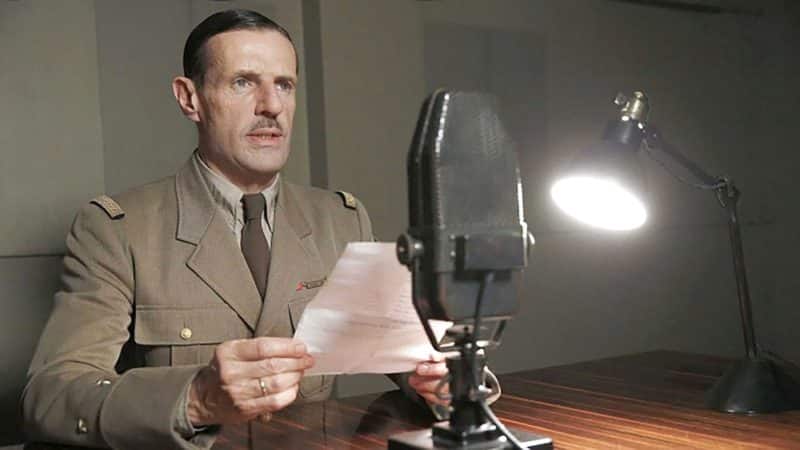Unlike their World War II allies, the French produced few movies about their military and political leadership before and after the German invasion of 1940. Instead, they tackled tricky subjects such as collaboration with the Nazis, the deportation of Jews, and the role of the Resistance.
Britain, by contrast, has produced three movies on Winston Churchill alone in as many years.
So, it was refreshing to see De Gaulle in the French Film Festival, providing some insight into the plight of its government, as politicians debated surrender to Hitler, and the creation of Vichy France, a collaborationist regime.
In April, 1940, as German tanks and aircraft routed an unprepared French army, President Paul Reynaud promoted Charles de Gaulle to brigadier- general and undersecretary for war. His armoured division had staged one of the few counter-attacks against the Germans. He opposed an armistice with the enemy.
But the political wind and military reality were unfavourable. World War I hero Marshall Philippe Pétain and his supporters gained the upper hand. De Gaulle was not fazed by defeat, and had already made one trip to London to sound out Churchill on how France’s imperial troops could continue the fight outside of the homeland.
As time was running out, De Gaulle made a second, secretive trip to London to negotiate a full-scale alliance with Britain against the wishes of Pétain, who staged a coup against Reynaud. As a result, de Gaulle was condemned as a traitor, losing both his post and rank.
This also put his family at risk in their Brittany hideaway. The plight of his wife Yvonne, two adult children and a young Down’s syndrome daughter provides a subplot that shows the impact of war on ordinary people. The de Gaulles fled, and sought passage on a Dutch refugee ship, before all the ports were closed by the enemy.
While de Gaulle’s efforts in London were only partly successful, they did establish him as the undisputed leader of Free France, even if it had little to offer the war effort at the time. Only 7000 of the 100,000 French soldiers evacuated to Britain from Dunkirk and Norway stayed to fight with de Gaulle.
The period covered is only a few months, and climaxes with de Gaulle’s famous L’Appel (Appeal) broadcast on the BBC on June 18, 1940, just a week before the armistice was signed with Germany.
The screenplay, by director Gabriel Le Bomin and Valérie Ranson-Enguiale, allows some depth to explore the political and personal perspectives.
Lambert Wilson (The Confessions) makes an impressive de Gaulle, in a cast that also includes Isabelle Carré as Yvonne, Olivier Gourmet as the hapless Reynaud, and Philippe Laudenbach as Pétain. Tim Hudson is less convincing as a bilingual Churchill, who is predictably reduced to a caricature that may have pleased French audiences, but doesn’t stand up to the more nuanced performances of Gary Oldman (Darkest Hour) or Brian Cox (Churchill).
After the war, de Gaulle was called out of retirement to resume his political career, establishing the Fifth Republic, and restoring France’s role in the world.
Rating: Mature audiences. 108 minutes.

Reader Interactions